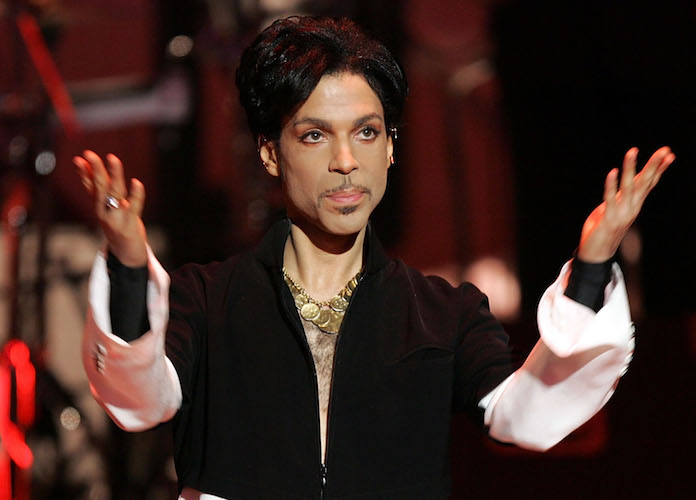Percocet Found In Prince’s System
Prince reportedly had opiates in his system. His autopsy found that he had Percocet, the painkiller drug and synthetic opiate, in his body. It is also believed that he had a critically low red blood cell count, which meant that he was sick.
It was originally reported that he had a prescription for opiod medication on him when he died. The cause of his death is still being determined. Results from his toxicology and autopsy could take weeks, the medical examiner’s office said in late April. The Drug Enforcement Agency (DEA) and the U.S. Attorney’s Office will provide federal resources to help with the investigation.
Right before he died, some of his friends sought treatment for the beloved star. They consulted urgent help from Dr. Howard Kornfeld in California, who specializes in treating people addicted to pain medication.
“Dr. Kornfeld, who runs a treatment center in Mill Valley, Calif., sent his son [Andrew] on an overnight flight to meet with Prince at his home to discuss a treatment plan, said William J. Mauzy, a lawyer for the Kornfeld family, during a news conference on Wednesday outside his Minneapolis office,” the New York Times reported.
By the time Andrew arrived, though, Prince was already unresponsive in the elevator in his Paisley Park estate. Andrew and a few others then called 911, but Prince was pronounced dead soon after.
Actress Jamie Lee Curtis knows what Prince went through. “Prince was toxic. I can relate. I was toxic, too,” she wrote in the Huffington Post.
She has been in recovery for 17 years. “I, too, took too many at once. I, too, sought to kill emotional and physical pain with pain killers. Kill it. Make it stop,” she said. “Most people who become addicted, like me, do so after a prescription for a painkiller following a medical procedure. Once the phenomenon of craving sets in, it is often too late.”
It is a curious phenomenon because Prince has always maintained a perfect public image. He had a vegan diet, did not drink alcohol or smoke marijuana, and did not let those touring with him do so either. But after he had hip surgery, which stemmed from decades of vigorous live performances, he was prescribed pain medication.
As time went on, he became more dependent on it. Since he was a very private person, people around him, even those closest to him, were unaware of his addiction.
Alan Leeds, Prince’s former manager in the 1980s and later the president of the singer’s Paisley Park Records, is not entirely surprised, however. “There wasn’t a tour we did where he wasn’t sometimes performing in pain,” he told the New York Times. “He was that kind of old school, the-show-must-go-on guy, so the idea of him medicating himself in order to perform isn’t strange to me.”
RELATED ARTICLES
Get the most-revealing celebrity conversations with the uInterview podcast!




 Click here for the Best Celebrity Bikini Bodies Slideshow
Click here for the Best Celebrity Bikini Bodies Slideshow



Leave a comment